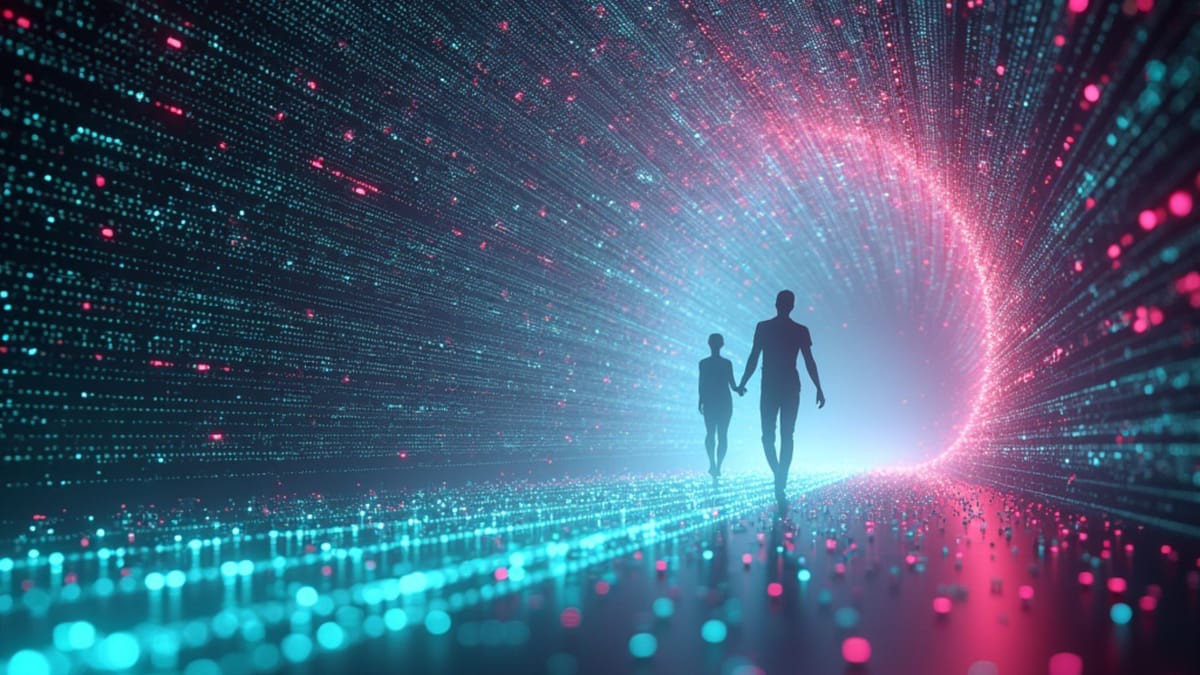The Great Wage Displacement: How AI Will Dramatically Shrink Labor's Share of Economic Output

"Right now, 60% of GDP is spent on labor, on wages. That's a lot, and it's going to potentially go closer to zero," states Dwarkesh Patel, describing what may be the most profound economic transformation in human history.
End of Miles reports that this fundamental shift in economic distribution is not speculative futurism but a logical consequence of accelerating AI capabilities that will systematically displace human labor across virtually all sectors.
The Mathematics of Labor Displacement
Patel's analysis centers on the inevitable decline in relative economic value of human workers as artificial intelligence systems become increasingly capable. The AI researcher maintains that even with substantial GDP growth, the percentage allocated to human wages will consistently diminish.
"I don't really think there's a way that wouldn't happen. How would the fraction that humans control go up? Humans are paid in wages, so even if you have UBI or something, the relative importance of humans in the economy will continue to decrease." Dwarkesh Patel
The Stanford-affiliated podcaster points to a fundamental mathematical reality: as AI systems replace human capabilities across sectors, the economic output previously generated by humans becomes captured by AI-powered systems instead.
Where Will Economic Value Flow?
When pressed about who or what will capture this economic value, Patel offered a clear prediction about the redistribution of economic resources.
"Most of the output is going to firms that are made up of AIs or going to capital allocators who are themselves maybe humans but are investing in AI stuff." Dwarkesh Patel
This represents a fundamental redistribution of economic power from labor to capital owners and those who control AI infrastructure. The technology expert sees this shift as virtually inevitable given the economic advantages of AI systems over human workers, including scalability, replicability, and coordination capabilities.
Beyond Universal Basic Income
The economic theorist addresses the potential counterargument that social policies like Universal Basic Income might preserve human economic standing. While acknowledging UBI could provide subsistence, he dismisses its ability to maintain humans' relative economic importance.
According to Patel, even with redistributive policies, the percentage of economic value generated by and flowing to humans will mathematically decline as AI capabilities expand across sectors.
"Even if some people will still get paid a lot of money for things like nannies or whatever... GDP will increase a lot and the relative fraction which is paid to humans will continue to decrease." Dwarkesh Patel
The AI specialist's projection suggests we are entering an unprecedented economic era where the fundamental relationship between human labor and economic value – which has defined economic systems for millennia – becomes structurally decoupled.
Why This Matters Now
This economic forecast has immediate implications for long-term investment strategies, public policy planning, and education systems. If Patel's analysis proves correct, societies face the challenge of managing a transition where the primary mechanism for distributing economic resources – wages for labor – becomes increasingly obsolete.
The tech commentator's insights suggest that current debates about AI job displacement may dramatically underestimate the systemic nature of the coming economic transformation. Rather than merely shifting employment between sectors, AI may fundamentally alter the economic equation by removing human labor as a central component of value creation.





